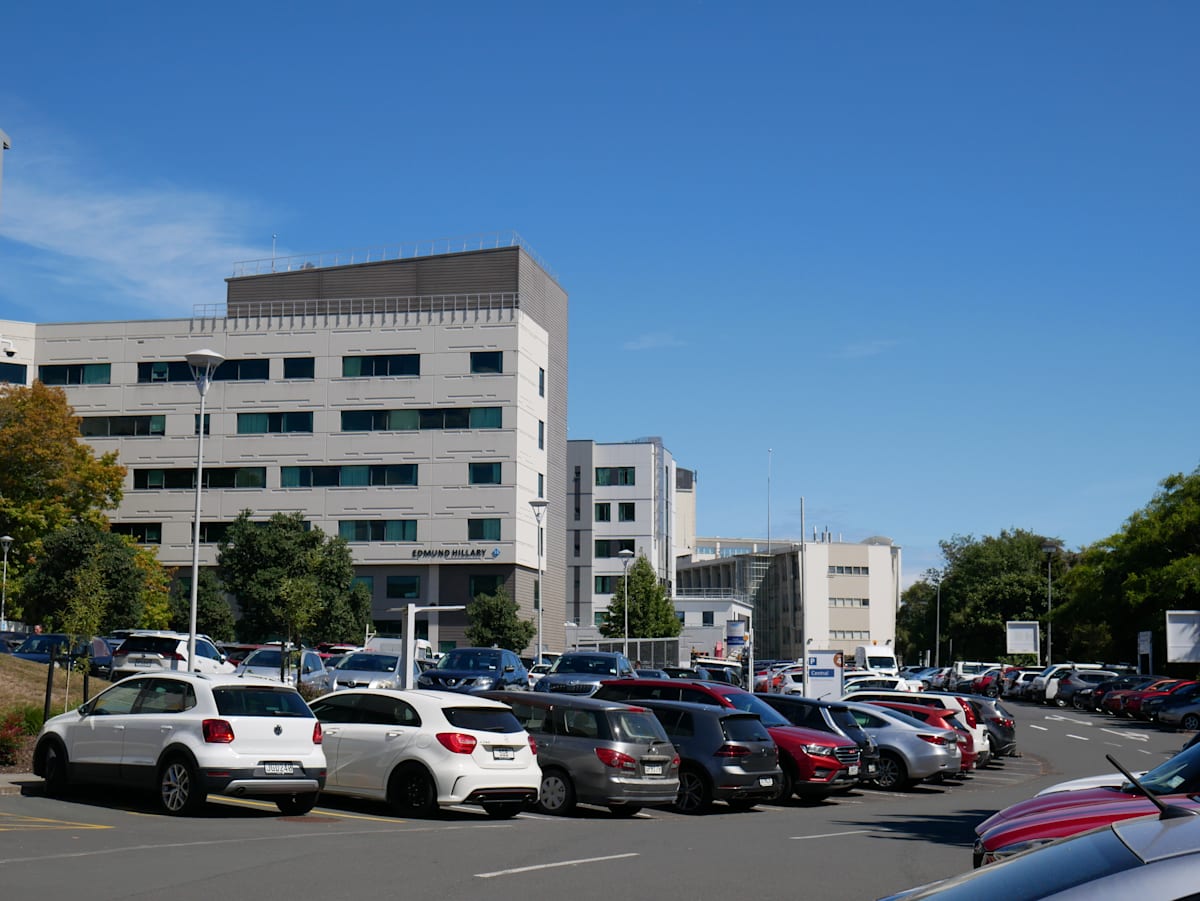
Health officials warn that while cases are largely among younger age groups at this moment, the long tail of the outbreak could leave a lasting impact on older and more vulnerable people
Last week Dr Andrew Old, Chief clinical officer for the Northern Regional Co-ordination Centre, had a cautious optimism that Auckland was nearing the peak of case numbers and would soon find itself on the downhill on the other side.
Speaking outside of Middlemore Hospital this afternoon he confirmed this optimism was well-placed, with Auckland’s case numbers beginning to drop and expected to decline over the next few weeks.
Today there were 19,566 cases, a slight increase on the 19,452 of the previous day, as can be seen in Newsroom's Marc Daalder's daily outbreak dashboard. It's a drop on the 20,000 plus daily figures of around 10 days back.
Despite the overall numbers beginning to dip, a record 10 deaths were reported today, bringing New Zealand’s total death toll up to 151. Of these deaths, half were in Auckland, and one each in Northland, Bay of Plenty, Hawke’s Bay and the Hutt Valley.
Putting the peak behind it may be good news for the city, but it is tempered by other parts of the country still having to go through the worst of it and concerns that the outbreak’s long tail may disproportionately harm vulnerable populations.
“We heard last week about the expected long tail of this outbreak,” he said. “Our concern is this will start to impact on our older more medically vulnerable populations.”
Although at this stage cases remain more common among younger age groups, with the average of hospitalised cases in the northern region around 40 years old.
There has been an increase in the number of people in hospital dealing with severe illness. For the overall population, around 1.5 percent of positive cases end up being hospitalised, while for over 65s, this number is closer to 8.5 percent.
A fifth of all hospitalisations over the last month have been people from this older age group, who are also more likely to have other health conditions that increase their chances of a bad reaction to Omicron.
While the average length of stay in hospital for Covid cases is still less than two days, for this older age group, it’s more than three days. Old said this highlights the additional risks of catching Covid for older people.
“It’s important we remain vigilant to prevent further spread into groups who are [at] higher risk of ending up in hospital,” he said.
The risk for the older population is visible in the breakdown of today’s deaths. While one person was in their 30s and one in their 50s, the rest were above the age of 70.
Dr Vanessa Thornton is the clinical director for the emergency department at Middlemore Hospital, where around 30 percent of people arriving in ED over the last few weeks have tested positive for Covid.
The hospital has five wards dedicated to the virus, with a sixth earmarked as a contingency.
“We are seeing more medically vulnerable patients in the ED,” she said. “Often it’s the underlying medical conditions of these patients that are having greatest impact and need for hospitalisation.”
There are a number of other health conditions likely to increase risk of Covid severity for the affected population. Thornton highlighted diabetes, heart disease and chronic lung disease as some of the more prevalent.

And despite having passed the peak, medical staff catching the virus themselves and a steady plateau of continued hospitalisations mean doctors and nurses can’t take a breather just yet.
Staffing levels in northern region hospitals are around 10 percent below the ideal, with many staff off as positive cases.
Old has kept his cautious optimism intact, saying although hospital admissions are still high, the peak for this number may soon be passed as well.
“Hospitalisations remain high, with 618 people with Covid currently in hospital across Auckland,” he said. “But with cases declining and new admissions plateauing, we are hopeful that hospitalisations too may turn a corner over the next week.”







